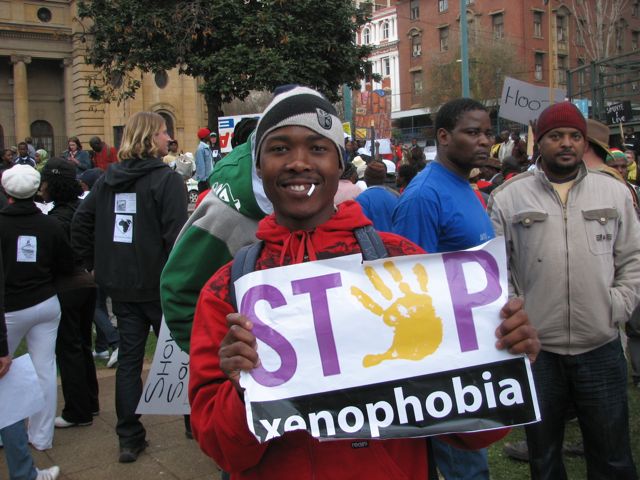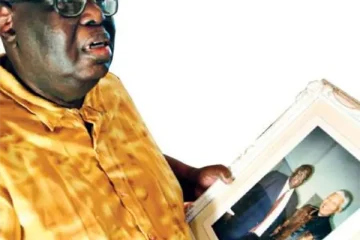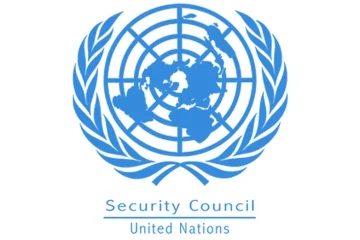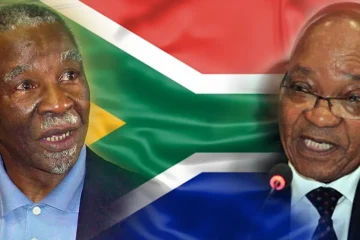Racist and xenophobic politicians have abused the coronavirus pandemic and subsequent national lockdowns to bang the drum for their chauvinism and propaganda.
IN THE space of a few months, the coronavirus pandemic has significantly changed the world. It has cut across class, cultural and political lines and made a mockery of the borders used to separate humanity. Despite repeated warnings of imminent future pandemics, most governments were unprepared for the Covid-19 shock.
With well over four million infections worldwide, and more than 300 000 people having lost their lives as a result of the virus, global institutions such as the World Health Organization have maintained the call for global solidarity. It has been echoed by progressive grassroots movements and trade unions calling for “physical distancing and social solidarity”.
But the likes of United States President Donald Trump and his Brazilian counterpart, Jair Bolsonaro, have solidified their infamy as racists and xenophobes. Trump has insisted on calling Covid-19 “the China virus”, spread wildly inaccurate and dangerous conspiracy theories, and challenged medical scientists during live briefings.
In Brazil, Bolsonaro has touted the same chloroquine-based treatment that Trump has in his country. A Brazilian study into its effectiveness was halted after 11 people died. In April, Bolsonaro called for a day of fasting and prayer, and later in the month he knelt before an evangelical pastor who declared that Brazil was free of Covid-19.
The virus has presented an opportunity to Bolsonaro to attack his political opponents by trying to discredit the mainstream media and suggesting that the number of deaths has been manipulated for political purposes. His education minister and close ally, Abraham Weintraub, has jumped on the bandwagon and followed Trump in blaming China for the spread of the virus.
Pandemics and discrimination
As the pandemic has reached almost every corner of the globe, so too have the fear, distrust and hate that have followed in its shadow. Unfortunately, the gross displays of xenophobia and racism that have emerged are nothing new. History is full of examples of these happening.
Every major pandemic the world has experienced has been followed closely by another, more sinister virus – that of racism, xenophobia and chauvinism. Of course, these social pathologies have also festered in the times of economic crises and, with many countries now facing both the pandemic and an economic crisis, these are dangerous days.
Looking at the 14th century, when the Black Death ravaged Europe, economist Jerome Roos recently wrote: “There was a marked rise in xenophobic violence, as survivors in various parts of Europe turned on outsiders – especially Jews, whom they preposterously accused of having poisoned the wells.”
More recently, the arrival of the bubonic plague in Cape Town in 1901 marked the beginnings of modern segregation in South Africa. The plague arrived in the city through the docks, but black Africans were stigmatised, quarantined and then forcibly removed. As the disease spread to other areas, such as Port Elizabeth in what is now the Eastern Cape, black people were forcibly relocated to segregated areas such as New Brighton. This was the grim overture to the forced removals to come.
Migrants always at the losing end
There have been countless other examples globally through the decades, from the policing of the Hajj under the International Sanitary Conventions between 1892 and 1938, when Muslim pilgrims were perceived as a threat in Europe, to Chinese-specific quarantines in San Francisco during the plague epidemic between 1900 and 1904. So, too, the 1918 influenza pandemic, which although it is thought to have emerged on a pig farm in Kansas, was called the Spanish Flu.
The Great Depression of the 1930s enabled the rise of fascism in Europe, a development that would have profound consequences for our own country when the Nazi sympathisers in the National Party took state power in 1948.
More recently, the 2008 financial crisis led to a wave of attacks on migrants in Italy. In September 2009, German police began investigating a string of letters inciting racial hatred that were sent to politicians of immigrant backgrounds. In the United Kingdom, there were reports of migrant students being physically attacked as well as attacks on about 100 members of the Roma community.
In South Africa, the most violent wave of xenophobic violence the country has ever seen swept through shack settlements in Gauteng in May 2008 before spreading to areas in KwaZulu-Natal and the Western Cape. Sixty-two people were killed and dozens more injured. Later, reports suggested the violence and hatred were fuelled by intense competition for jobs and housing, and often incited by local politicians.
Now, as we are buffeted by the twin headwinds of the pandemic and the economic disaster accompanying it, people with significant influence in the ruling party are actively inciting xenophobia.
Politicians show their biased colours
The first major action the state undertook in response to the virus was led by Minister of Public Works Patricia de Lille, who, in high Trumpian fashion, oversaw the building of a fence along the border with Zimbabwe. Then Minister of Small Business Development Khumbudzo Ntshavheni implied that only spaza shops owned and managed by South Africans would be allowed to remain open during the lockdown.
Minister of Employment and Labour Thulas Nxesi recently said: “We must introduce … quotas and stick to [them] and be very hard … In doing that we must not be seen to be xenophobic or violating international conventions, but at the same time protect our national interests.”
Last year, Minister of Finance Tito Mboweni told the World Economic Forum on Africa that the majority of South Africans were against xenophobia. He recently changed his tune and promised that there was going to be “a new way of doing things”. His “new way” took on a noticeably xenophobic stance.
“The proportion of South Africans working in a restaurant must be greater than that of non-South Africans,” Mboweni said. “The new economy that we are getting into after the lifting of the lockdown must answer that question. Any establishment wanting to reopen must have a new labour market policy which prioritises South Africans but does not discriminate against [immigrants].”
About a plainly prejudicial set of proposed measures, he said: “Nothing is xenophobic about that.”
Excuse for repression
Other politicians have brazenly prevented migrants, asylum seekers and those who are undocumented from accessing food parcels.
Gauteng acting member of the executive council for social development Panyaza Lesufi said recently: “Our approach is simple. Whoever is appropriately documented to be inside the country will get support, and if people are not documented to be in the country it’s unfortunate. We will request them to deal with that aspect so that they can be in a queue. We are not discriminating.”
His counterpart for community safety in the province, Faith Mazibuko, has celebrated on Twitter the rounding up of people who she claims are undocumented migrants.
What these politicians don’t mention is that people don’t choose to be undocumented. Asylum seekers sometimes wait for decades to get a ruling on their applications, while refugee reception offices around the country have inexplicably high numbers of rejected asylum applications. Moreover, the police have often arrested people who are documented only to destroy their documents in the process.
We should not forget that while political elites use migrants as scapegoats in the name of the poor, the biggest organisations of the impoverished and the working class have been consistently anti-xenophobic and welcomed migrants into their midst as members and leaders. As shack dwellers’ movement Abahlali baseMjondolo said recently, Covid-19 “is being exploited by the government as an excuse to repress those it has always wanted to repress”. – This article was first published in New Frame.














